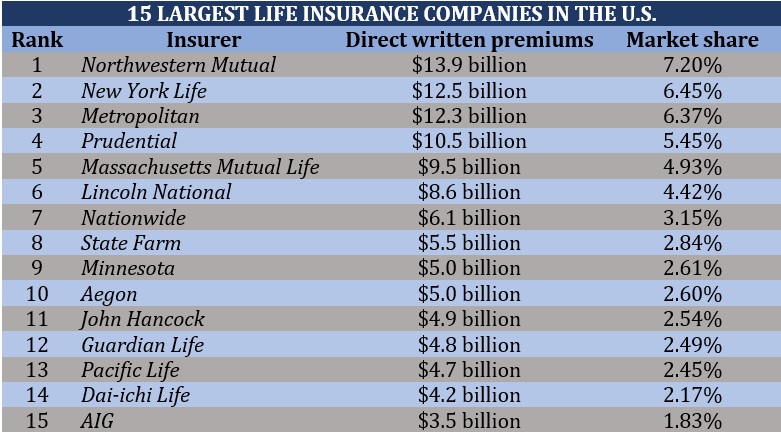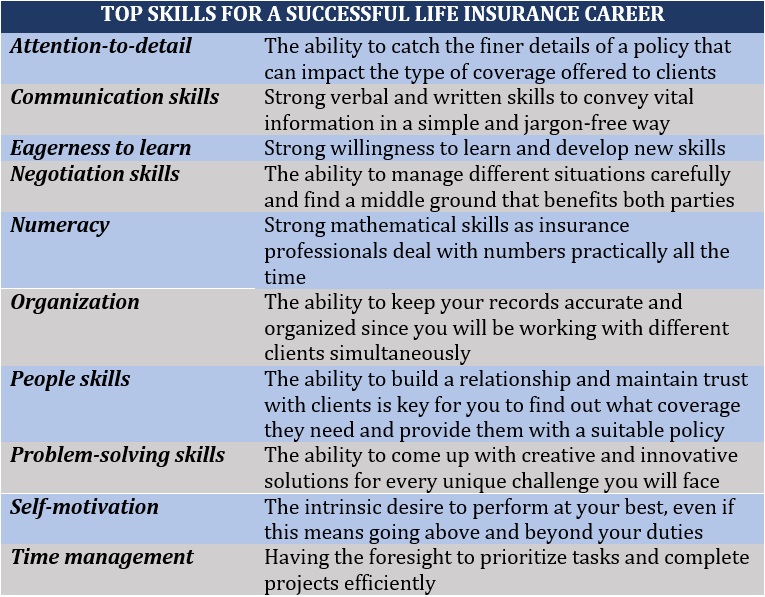

One of the biggest challenges of a career in life insurance is that it entails dealing with a subject that most people don’t want to talk about – their mortality. On the flipside, life insurance professionals are also given the opportunity to leave a positive impact on people’s lives following a tragic loss, which can make their jobs truly rewarding.
If you’re working out whether this is the right direction to go careerwise, then you’ve come to the right place. In this article, Insurance Business will answer the question, “Is life insurance a good career path for me?” We will discuss the benefits and drawbacks of a life insurance career, what roles you can pursue, and how you can succeed in the industry. Read on and find out if a life insurance career matches your skills and qualifications in this comprehensive guide.
Just like in any profession, choosing a career in life insurance has its share of advantages and drawbacks. To find out if a role in the sector is a good fit for you, you must first weigh these pros and cons. Here are some of the benefits and disadvantages of pursuing a job in life insurance.
While some life insurance companies prefer candidates with a college degree, several client-facing roles – including insurance agents and brokers – don’t necessarily require one. To help prepare these professionals for their jobs, most life insurers have mentorship and training programs in place.
Many back-office roles – including those in actuarial science, business analysis, and risk modelling – however, require specific college degrees. Some professionals also need to obtain licenses to practice.
Apart from conventional roles in sales and underwriting, the life insurance sector offers a range of career opportunities that suit different skills and qualifications. You can choose roles that go beyond the purely insurance aspect, including those in the fields of:
We will discuss the different occupations you can pursue within the life insurance sector in more detail in the succeeding section. If you’re looking for a life insurance position that fits your talent, our list of the best websites for insurance jobs can help you in your search.
Another factor that makes life insurance a good career path is the opportunity to earn a high salary with strong growth potential. Life insurance agents and brokers, in particular, generate commission-based incomes that are among the highest in the entire insurance industry.
If you want to find out how much life insurance agents make compared to their counterparts in other business lines, you can get the answer in our comprehensive guide to insurance agent salaries.
Life insurance plays an essential role in providing families with a financial cushion after the death of a loved one. With the right policy, this type of coverage can help families pay off debts and meet daily living expenses. These are just a few of the several reasons why life insurance products are on demand. And with the high volume of people looking for coverage, this also means that plenty of opportunities to work in the industry are opening.
These include vacancies in some of the sector’s biggest names. The table below lists the 15 largest life insurance companies in the US, according to the latest market share report from the National Association of Insurance Commissioners (NAIC).

Depending on the role, many life insurance professionals work long hours and are under tremendous pressure to meet different targets and quotas. This highly competitive work environment often leads to stress and burnout, especially for new agents.
Data gathered by this website has revealed that 90% of new life insurance agents quit within the first year due to burnout. The figure rises to 95% if stretched to the first five years.
If you choose to pursue a commission-based role, predicting how much your next paycheck will be can prove challenging as your income will largely depend on the number of successful sales and claims you can assess. This means that for you to earn more, you also need to push yourself harder.
Among the roles that largely depend on commissions are life insurance agents. If you want to know how much they earn, our comprehensive guide on life insurance agent salary can give you the answer.
Life insurance agents are often tasked with finding customer leads on their own. And although there are life insurance companies that provide staff with leads, in a highly competitive market, there is a strong likelihood that these leads may have already been contacted by several other insurance agents.
Agents can also pay to obtain exclusive leads, which can be extremely expensive. If you choose to go this route, you need to have a very high close rate – or the percentage of leads that results in a sale – to just break even.
Some positions come with repetitive tasks, which can lead to boredom. There are also roles that offer limited upward mobility.
Here’s a summary of some of the pros and cons that you need to factor in if you want to find out whether life insurance is a good career path for you.

One of the benefits of pursuing a career in life insurance is that you can choose from a range of professional opportunities that fit your skills, experience, and qualifications. Some of these roles are:
For many client-facing roles, their success as a life insurance professional depends largely on the type of relationship they establish with customers. Here are some strategies that you can employ to help you build a strong professional relationship with your clients.
Having the right combination of hard and soft skills also plays a huge role in your success in the sector. The table below sums up the skills and attributes that will dictate if life insurance is a good career path for you.

Part of establishing a successful career in life insurance is keeping abreast of the latest developments in the sector. You can do this by bookmarking and regularly visiting our Life & Health Insurance News section, where you can access breaking news and the latest industry updates.
Is life insurance a good career path to take? What skills and attributes do you think aspiring professionals need to possess to thrive in the sector? Feel free to share your comments below.
